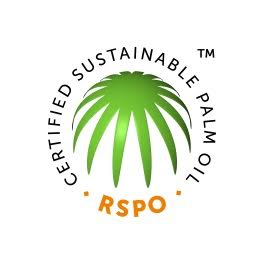RT14 Calls Stakeholders to Collaborate For a Truly Sustainable Palm Oil Industry

The Roundtable on Sustainable Palm Oil’s (RSPO) 14th Annual Roundtable Meeting (RT14) urged corporate leaders, NGOs, policy makers and academics to step up and join forces to ensure an effective and sustainable palm oil ecosystem. Following the success of the RSPO NEXT discussion last year, which called for stakeholders “to work together, rather than competing to be more sustainable than your neighbour,” this year’s RT14 theme, “Learning to Live Together: From Vision to Transformation” is prompting stakeholders to share knowledge and practical expertise.
“Inclusive partnership is more crucial than ever at this stage as we embrace the concept of market transformation in committing of not leaving anyone behind. Stakeholders must increase their participation to improve effectiveness. Now comes the hard question. How do we ensure these certification schemes are benefiting sustainability? Only through strong collaboration and collective action, we will be able to achieve this vision,” said Datuk Darrel Webber, Chief Executive Officer of the RSPO.
The RT14 also emphasised social issues within the palm oil producing regions, related to contract labour, gender, migration and occupational health and safety and how the whole supply chain and invested stakeholders can contribute in addressing these issues, and move towards a truly sustainable future for the industry.
 During the conference, the RSPO reaffirmed its commitment to lead the change by ensuring that no stakeholders are left behind in the process of transformation, which includes the smallholders by providing them with access to global markets.
During the conference, the RSPO reaffirmed its commitment to lead the change by ensuring that no stakeholders are left behind in the process of transformation, which includes the smallholders by providing them with access to global markets.
“There are over 3 million oil palm smallholders worldwide, who account for 30% of the total global production of palm oil while making up 40% of the land coverage used for palm oil cultivation. As part of RSPO’s efforts to support the smallholders, we have implemented various activities and local outreach in Indonesia, Malaysia, Thailand, and more recently Colombia and Ghana,” Datuk Webber added.
In addition, at the RT14 the RSPO launched a video campaign to promote its new RSPO Trademark Mobile App, which will allow consumers to identify and geolocate products carrying the RSPO Trademark in a bid to increase consumer awareness on Certified Sustainable Palm Oil and to help consumers have a say with their shopping choices.
The progress made on Jurisdictional approach were also highlighted at the conference. In particular, the government of Ecuador achieved a major milestone by demonstrating firm support of sustainable palm oil. The Ecuadorian Amazon is one of Ecuador’s highest producing regions. Effort is concentrated on transforming parts of the landscape that have been deforested for agricultural use with a transversal focus on sustainability. Launching a pilot programme utilising RSPO principles, the government has established coalitions with stakeholders such as palm oil companies and non-profit organisations like Ancupa and UN-REDD (UN-Reducing Emissions from Deforestation and Forest Degradation).
The RT14 was held in the Shangri-La Hotel Bangkok, Thailand from 9th to 10th November 2016 and was attended by H.E. General Prawit Wongsuwan, Deputy Prime Minister of the Kingdom of Thailand along with over 800 representatives from leading figures in the palm oil industry, corporate leaders in sustainability, financial institutions, policymakers, and academics as well as social and environmental NGOs from 46 countries.

































